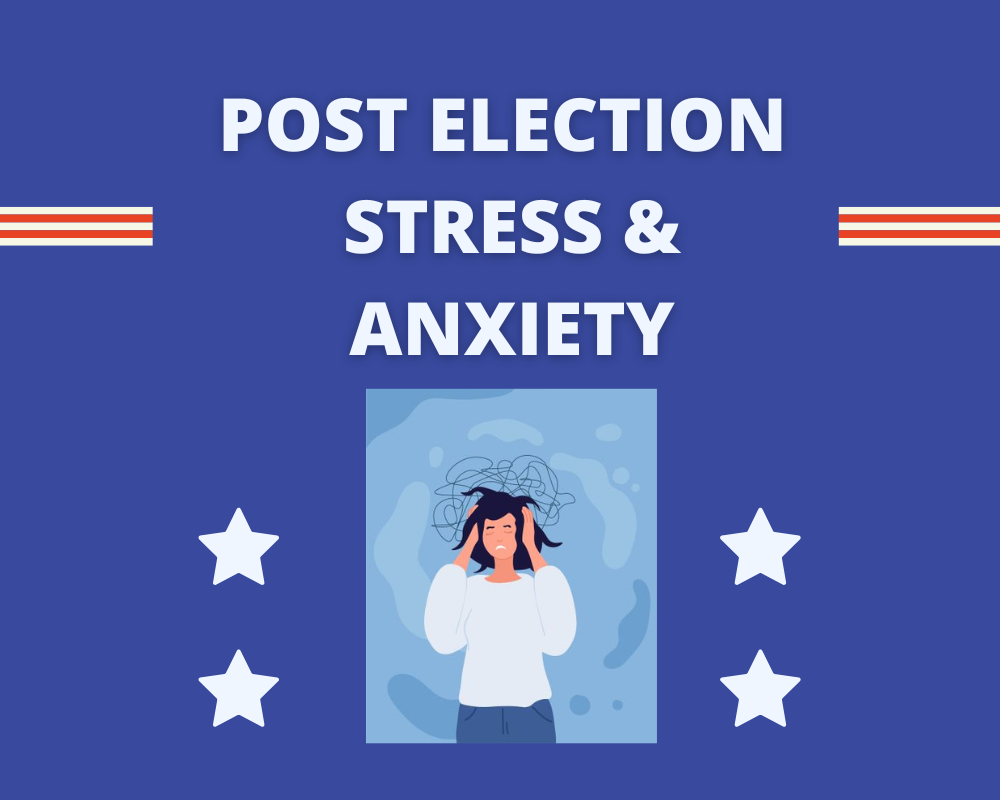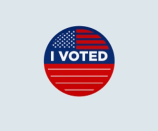The Election is Over - Now What?
The Election is Over - Now What?

Election Day has come and gone. However, given the polarization that accompanied this election, it’s not unlikely that you may be experiencing a variety of emotions and thoughts. The sheer amount of content in the form of social media posts or ads alone have likely led to some post election exhaustion. Regardless of how you voted or what you believe politically, it’s important to remember that there are a variety of practical strategies to keep in mind when anticipating what’s to come in the days and months ahead, especially if you are experiencing stress or anxiety related to any part of the election season.
- Find trusted people and connect with them- You might want to talk about how you feel post election and at the same time, it’s sometimes hard to know where to share your thoughts and feelings. All too often, conversations can devolve especially on social
media groups. A good place to talk about how you are feeling would be with a trusted family member or friend, especially when you know that you have a “green light” to have these conversations. If you aren’t sure, you can say something like, “I am feeling ____ about the election and would really like to talk about it. Can we do that?” - Set boundaries- In contrast, you might be feeling like you need a break from intense or potentially conflictual conversations and that’s ok. Not everyone wants to talk about topics that might be either private or just something that you don’t want to discuss. If you have plans coming up with friends or family and you anticipate that it might go down a tricky path, it’s completely reasonable to say, “I am really excited to see you and I would love to avoid political conversations right now.” Setting that boundary ahead of time may avoid some awkward conversations. When thinking about the upcoming holidays, this may be a helpful tip to keep in mind. There are so many other things to talk about besides politics.
- Focus on what you can control- We cannot change what has already happened and you may be thinking about a variety of topics related to the election. You might be anticipating some changes and are eager for these changes to occur. Or- you might be worried about changes and how they may impact you, loved ones or others. These are things that are not in your immediate control. However, taking action that is aligned with your values is a way to feel like you are contributing in a meaningful way. The election is over but powerful and meaningful issues persist. If you are feeling at a loss for concrete thing to ‘do,’ this is a good time to find a way to put your efforts toward a cause that means something to you.
- Limit media consumption- Let’s face it- we are simply bombarded with content at all times. While it’s important to stay informed about what’s happening, there is also a limit to what we can comfortably take in at any given moment. Many people have shared feeling assailed by advertisements and posts over the past several months, so taking a break or a pause, even during certain points of the day may help you ‘reset.’ This doesn’t mean disconnecting from important information that you may need. However, you may decide to silence notifications on your phone or check certain news related apps less often.
- Know when to get more support - If you are finding that worries, stress or sadness are persisting, seek additional support. While these feelings are reasonable after a meaningful event, when sleep, appetite or mood are impacted in a persisting way, it’s helpful to get more support.




















